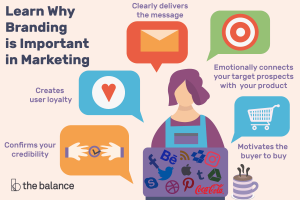We’ve all heard the old trope. “Active bodies stay active while sedentary bodies atrophy.” The same is true for marketing; use your tools to keep them sharp and your audience engaged. That’s why your company needs a marketing strategy.
See if this rings true for you. Your company has a big announcement, so the best writer on your team crafts a press release and you pay to send it out on PR Newswire. When the story comes out, you copy the link and post it on your company’s LinkedIn page with a self-congratulatory note. There, now the marketing is done. The business should be coming in the door in 3…2…1
I’ve seen that playbook as many times as I’ve seen out-of-shape adults show up at the gym the week of January 1st with a commitment to get fit.
As it turns out, having a healthy marketing strategy and a healthy body both require constant motion. You can’t sprint to cross the finish line if you haven’t run the first 25 miles of the marathon.
What Is A Marketing Strategy?
Continuing the fitness metaphor, the marketing strategy is a plan your company uses to achieve its goal, whether that goal is brand recognition, brand positioning, market share or sales. Just like you don’t walk into a gym and do a few Jumping Jacks and press out a few reps on the bench before hitting the showers, neither do you want to send out a few random tweets only when you have big news to share. Exercising and marketing are both steady, long-term commitments with end goals.
What’s The Value Of A Marketing Strategy?
Many growth stage companies avoid serious marketing efforts because they either view it solely as a cost, or they don’t understand the underlying value. Sure, they get the direct sales approach, especially in the B2B sector, but why bother with broader marketing efforts when you have a niche market to sell to, and your invention isn’t a commodity?
Two reasons:
- You aren’t selling a gizmo; you’re selling a brand. That brand has to have credibility, and that requires time.
- Buyers aren’t the rational actors you think they are. They are subject to biases and hard-wired for stories that transcend spreadsheets.

I love this infographic on the importance of branding in marketing developed by The Balance.
A good marketing strategy adds value by parallelling and promoting a company’s goals. To go back to the earlier example, the company could have been positioning its brand in the marketplace and highlighting itself within its industry long before the announcement by becoming a credible source of knowledge by producing content, building an online following, producing videos and optimizing its website to improve search engine rankings, among other tactics.
A marketing strategy is like your workout plan, so you know what exercises to perform when you hit the gym to achieve your fitness goals. That marketing strategy should be integrated to cover all parts of your online presence. You have to exercise both your arms, legs, chest and back. Think of your marketing plan as hitting all facets of your company’s digital life — website, blogs, social media and search engines.
You know you have to exercise multiple times each week to achieve your goals; the same is true for marketing. You aren’t going to tweet once and leave it at that. You need repetition, engagement and a fresh take on your industry every week.
The clients I work for aren’t selling products for $19.99 plus a free Ginsu knife if you order now. Getting customers to invest in your invention, which has zeroes both in front and behind the decimal point, requires an ongoing conversation as part of the sales cycle. Your materials, your knowledge and the emotional connection you build through your story aren’t just the cost of doing business; they are central to a successful business.
How Do You Develop A Marketing Strategy?
Larger companies usually have a CMO (Chief Marketing Officer), but most small to midsize companies benefit from the flexibility of an outside marketing strategist or marketing agency to come in with a fresh perspective because they aren’t so involved in the day-to-day operations. If the company is ill-defined, they’re likely to start by helping distill the company’s brand story into something with a unique value proposition. If the company is more mature, the marketers will focus more on brand extension, or how to move the company’s brand story out into its key markets.
Also, their jobs are:
- Integrating the brand story with the company’s overall goals.
- Developing a marketing plan that integrates content marketing, website design, social media marketing, e-mail marketing, advertising and search engine optimization to highlight and own that story no matter where your digital audience might be.
- Building your company’s online reputation with creative communications on a variety of digital channels.
- Calendaring product launches to generate maximum exposure.
- Creating a sales funnel so your customers can take an action step no matter where they find you online.
In addition, many marketing strategists and agencies will produce regular content for your website, engage on social media, write e-mail marketing campaigns, produce videos and manage your search engine performance — but those are tactical elements which occur after finalization of the initial plan.
The main thing to remember is just like a business plan, a marketing strategy is essential for a growing company to define success, or as the saying goes, “If you don’t know where you are going, how will you know you’ve got there.”
If you’d like to know more about integrating marketing, e-mail me to set up a complimentary 30-minute call to discuss your company’s needs.

